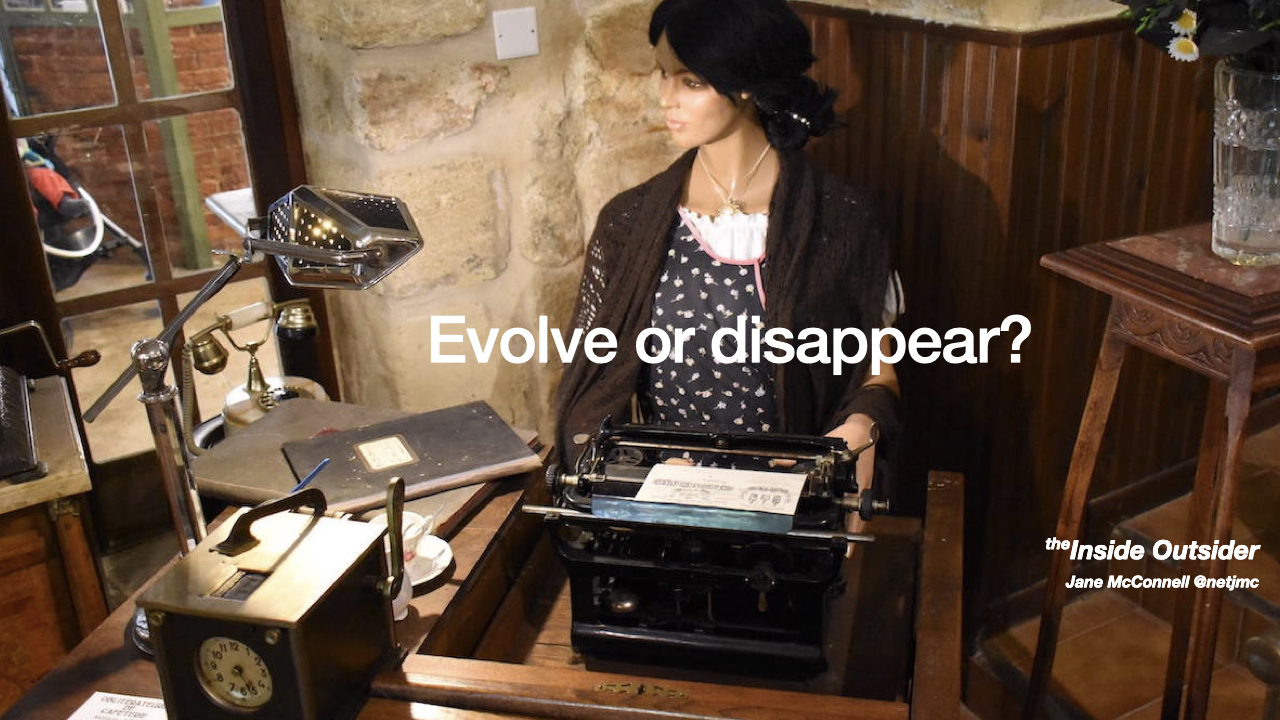9. Communicators have a battle to fight against lack of trust
From Inside Outsider

From Inside Outsider

Is the Communication function still relevant?
The question reminds me of reading Alan Rusbridger’s 2018 book Breaking News: The Remaking of Journalism and Why It Matters Now. Editor of The Guardian for 20 years– he was involved in some of the critical, defining moments in journalism. He says the following:
“Journalists no longer stand on a platform above their readers. They need to find a new voice. They have to regain trust. Journalism has to rethink its methods; reconfigure its relationship with the new kaleidoscope of other voices. It has to be more open about what it does and how it does it.” https://www.arusbridger.com/
This strong statement should inspire communicators.
They need to regain trust, rethink their methods, develop new relationships with other voices….”
What follows is part of a conversation I had with members of the Bold New Breed Community about the new role of Communicators and the trust issue.
Jane: Who do communicators work for? Who are they accountable to?
EM: To evolve, communicators need to get away from the “spin everything” to be an honest translator of corporate strategy and other topics so people get it–and have an opportunity to engage and discuss, rather than be targets for broadcasts. Employees know deliberately misleading statements when they hear them, yet so many communicators still try to make everything sound amazing, even when the topic is layoffs or the like.
Jane: Communicators need to go beyond being “translators of corporate strategy” and speak for people as well. Today they “work for” management and I would like to see them “work for” the whole company, including being translators, to use your term, E.M., for messages coming from people in the organization such as gig mindsetters, but also others, who will likely not be otherwise heard or understood by others.
A member of the 2018 Gig Mindset Advisory Board wrote to me:
“Eventually we will see IT and HR fully absorbed within the business, as they are essential to daily leadership choices.”
Personally I believe this is also true for Communications.
I asked the Bold New Breed community what they thought.
Jane: How do you see Communications evolving?
LS: In two ways: Firstly, by establishing a two-way street in terms of how people communicate with one another through open, frank, honest, truthful messages, not just for the good things, but also for more difficult topics.
Secondly, we need to understand the value of conversations. The late Esko Kilpi wrote about this a few years back: “Work is communication. Conversations and narratives are the new documents. Conversations cannot be controlled. The only way to influence conversations is to take part in them.“ https://wtfeconomy.com/conversations-and-narratives-are-the-new-documents-256ebcd3d37f
Jane: I conversed with Esko online over 5 years ago and asked him: “Do you believe knowledge is destroyed when people leave an organization?” You can imagine his answer: https://netjmc.com/does-knowledge-walk-when-people-walk/
Jane: Do you believe that Communications should focus on helping people converse rather than distributing content?
DT: Absolutely. Communication should move ahead from simply managing the “content” – the editorial part of comms – to a more holistic approach of managing the flows of communication. Bidirectional flows exist from four perspectives.
(DT continues): It’s hard to find good managers in charge of communication because they focus their attention on getting the message out but are not interested in the feedback. They often forget that the biggest skill of a person working in communication is listening. The biggest mistake a CEO can make is to put a journalist in charge of the communication function. Communication nowadays needs a different skill set.
I hear, Jane, when you say that comms as a function may disappear absorbed by the business. It’s a real risk but I do believe that comms as a function should become a service broker serving a broader set of stakeholders (in and out) evolving and supporting the transformation of organizations.
Communicators need to evolve significantly and quickly. From spinning messages to building trust, from producing content to managing flows, from working for the CEO to being a service broker for the organization as a whole.
Share your thoughts in the comments on the original post on LinkedIn (from March 3, 2022) and see what others think.
Photo by myself: Display in the 1900 Museum in Arpaillargues, just outside of Uzes.
Nothing matches your request, please try again with a different search term.